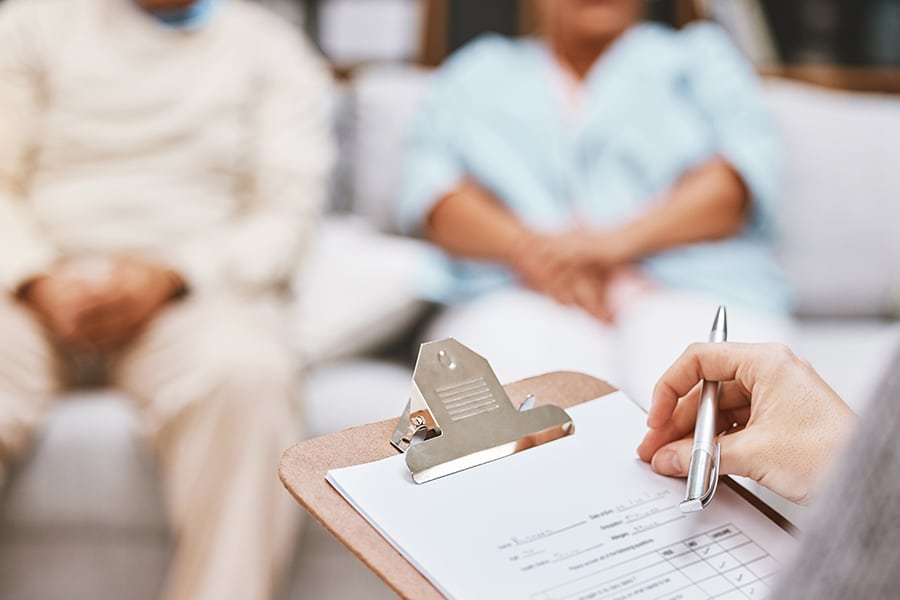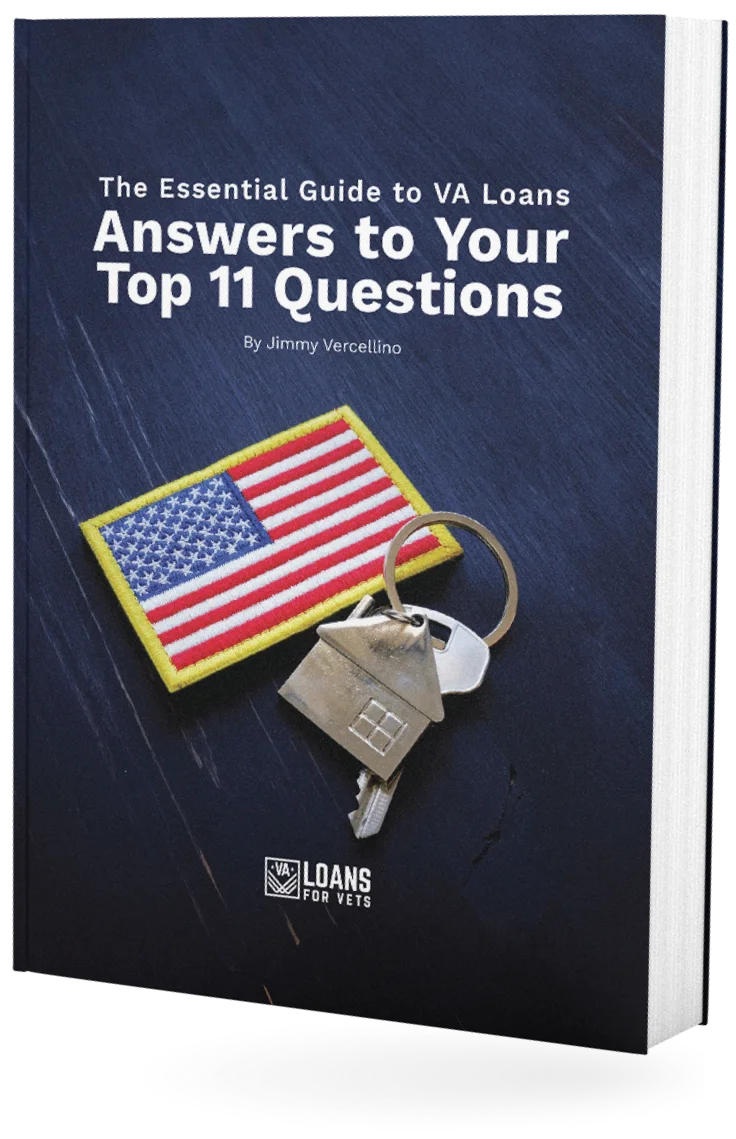VA appraisals are a required element of applying for a VA loan. It is a necessary step to help you avoid major pitfalls throughout the home-buying process.
There can be a lot that goes into finding an appraiser and conducting a VA home appraisal. To help you prepare for the VA appraisal process, here’s a rundown of the VA appraisal requirements.
What is a VA Appraisal?
To secure a VA home loan you’ll need a home appraisal on the property you intend to buy.
Appraisals determine the value of a property and are an important part of the home-buying process. VA loan lenders require an accurate picture of what the property is valued at. This is where appraisals come in. Appraisers will evaluate what the property is actually worth.
VA Appraisal Vs. Home Inspection
VA appraisals are often confused with VA home inspections, but they serve different functions. While highly recommended, home inspections are not required by the Department of Veterans Affairs for VA loans. Appraisals, on the other hand, are required.
Home Inspections
In a home inspection, the property is examined for any issues or problems. They can be extremely beneficial in determining what you might expect to pay for repairs and fixes down the road. Home inspections can also help bring any major problems with the house to light before you take ownership.
Home inspections usually involve checking the following elements.
- Structural stability
- Roof condition
- Electrical system
- Plumbing system
- Water system
- HVAC (heating and air conditioning systems)
- No pest or bug infestations
- Chimney inspection
- Mold inspection
Home Appraisals
An appraisal is often conducted on homes that are being financed by a home loan. Many lenders, VA home lenders included, require a home appraisal. The appraisal is conducted to determine the market value of a property.
Several factors of the house are examined by an appraiser to determine what the home is worth. The appraiser takes into consideration each of the following elements to make a determination of the home’s value.
- Location
- Other comparable home sales
- Lot size
- Square footage
- Number of bedrooms
- Amount of storage space
- Overall condition of the home
During this process, the house is also checked to ensure that it meets all VA loan property requirements.
VA Appraisal Requirements
Appraisals for VA loans must be done through a VA-approved appraiser. You can find an appropriate appraiser through the VA portal. A backed appraiser will know the property requirements for a VA loan and the approved VA appraisal process.
Who Pays for a VA Apprisal?
The home buyer will be responsible for paying for the home appraisal. The cost for a VA home appraisal will vary by state, but you can expect to pay anywhere from $500 to $800.
VA Appraisal Process
The appraiser’s main job is to evaluate the house to determine its fair market value. They’ll start by visiting the property and conducting research on nearby homes and property sales. The appraiser will then submit what they believe the house is worth.
VA Apprisaors also check that the property meets the minimum VA property requirements. Houses that do not meet these qualities do not qualify for VA home loans. These property requirements are designed to ensure that you are purchasing a safe and structurally sound home with your VA loan.
Once the appraisal is complete, you’ll be given a Notice of Value. In this document, you’ll be provided the appraisal’s determination of the true market value of the home, whether the house meets VA property requirements, and any fixes that need to be done to the home.
For more details about the overall safety of a house, consider also hiring a home inspector. While not necessarily required for a VA loan, home inspections can help identify any major issues or fixes that need to be done on the house before you agree to purchase.
VA Appraisal Challenges
After your appraisal is done, there might be additional steps or challenges that arise. Depending on what the appraiser determines, you might need to conduct additional repairs or renegotiate the price of the home.
Issues with the Property
If the appraisal turns up any problems with the home, you’ll have to fix the issue before the loan can close. This might mean conducting repairs or completing a termite inspection.
You have several options if the appraisal determines additional work or repairs are needed.
Ask the seller to make the repairs: The seller of the house might be willing to make the needed repairs. While this is the ideal option, the seller is not required to do so. However, they might choose to do so to help them sell the property.
Make the repairs yourself: If the seller refuses to fix any problems with the house, you can do so yourself. For minor repairs, this could be an option to help you secure your VA loan. Talk to your lender to see what options you have to make the repairs yourself.
Back out of the deal: It might be the case that the appraisal turns up major problems with the property. Structural or foundational damage might mean thousands of dollars worth of fixes. If this is the case, consider walking away from the property.
What Happens if the Apprisal is Too Low
Sometimes, the appraisal values the house at less than you agreed to pay for it. If this is the case, there are several things you can do.
Ask the seller to lower the price: A seller might be willing to drop the price in light of new information. Dropping the price a little might seem like an okay concession to prevent you from losing interest in the property.
Cover the difference out of pocket: Unfortunately, the lender will only approve a loan for the appraisal value of the house. If you’re still excited about a property after the appraisal comes in low, you can make up the difference yourself. You’ll need to cover the difference between the purchase price and the loan amount in cash.
Back out of the deal: If the house turns out to be worth less than you thought, or significant problems with the house come to light, you can walk away from the sale.
Seek another appraisal: You might not agree with the outcome of the appraisal. If this is the case, you can hire another appraiser to evaluate the house. In this case, you’ll need to pay for both appraisals.
Why is a VA Appraisal Important?
Appraisals are needed to get an accurate picture of the value of a house. The price of a home is determined by many factors, but not all of them actually affect the true value of the house. You can expect to pay more for a house with features like more square footage, more bedrooms, or a more desirable location.
While each of these components can drive up the price of a house, they also increase its value. When you sell the property, you can usually expect the new owner to pay a similar, if not higher, price for the house.
However, there are other factors that can increase a house’s price that do not increase the value. You might pay more for the house than it is worth depending on several factors. This can happen if you purchase the home while the market is at an unusual high or if you get into a bidding war against other potential buyers.
Appraisals protect you and your lender from overpaying for a home.
Contact Us
Have questions? Contact an expert. VA Loans For Vets is here to help answer all your questions about the VA loan appraisal process. Give us a call today at 602-908-5849.



